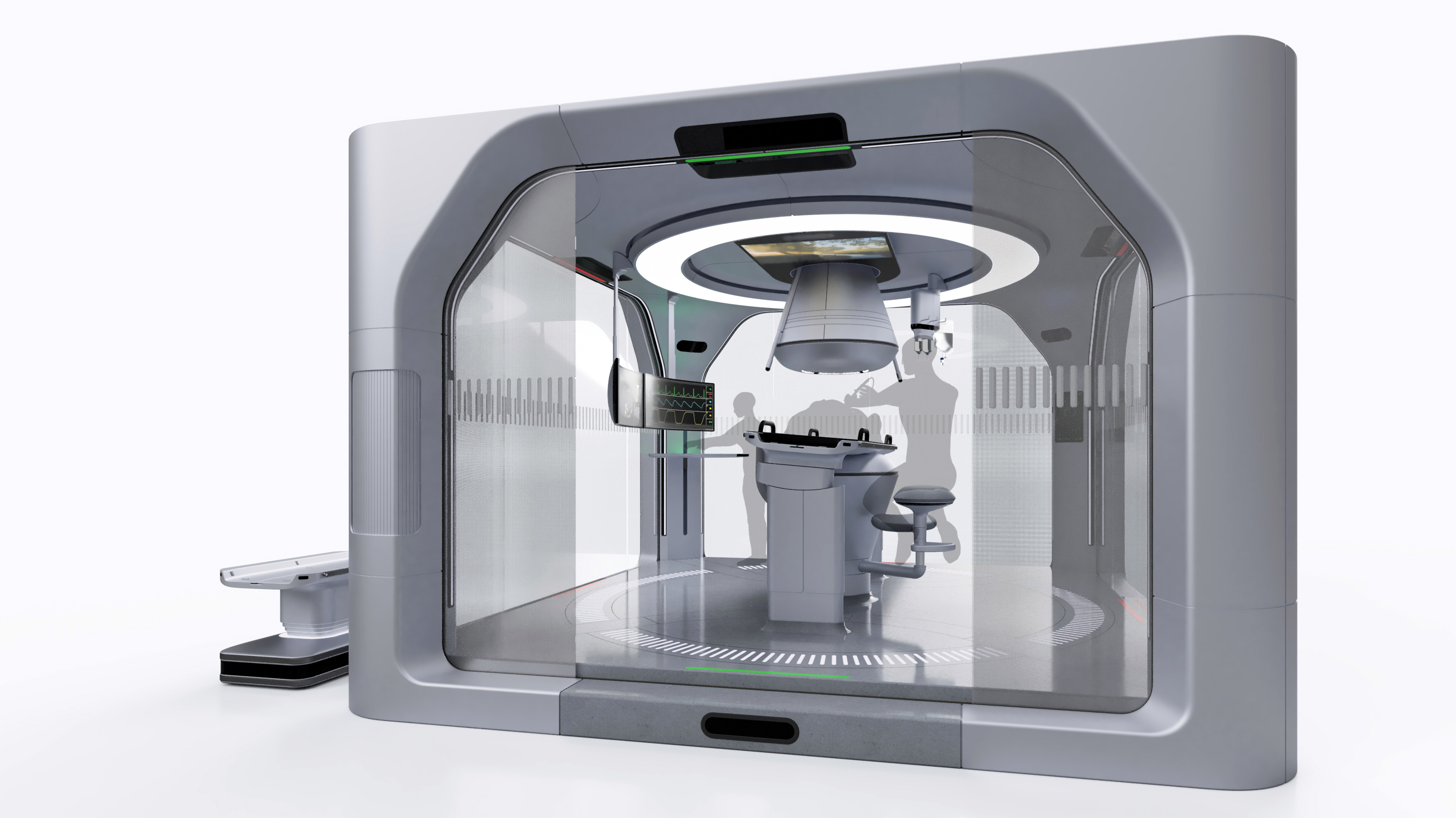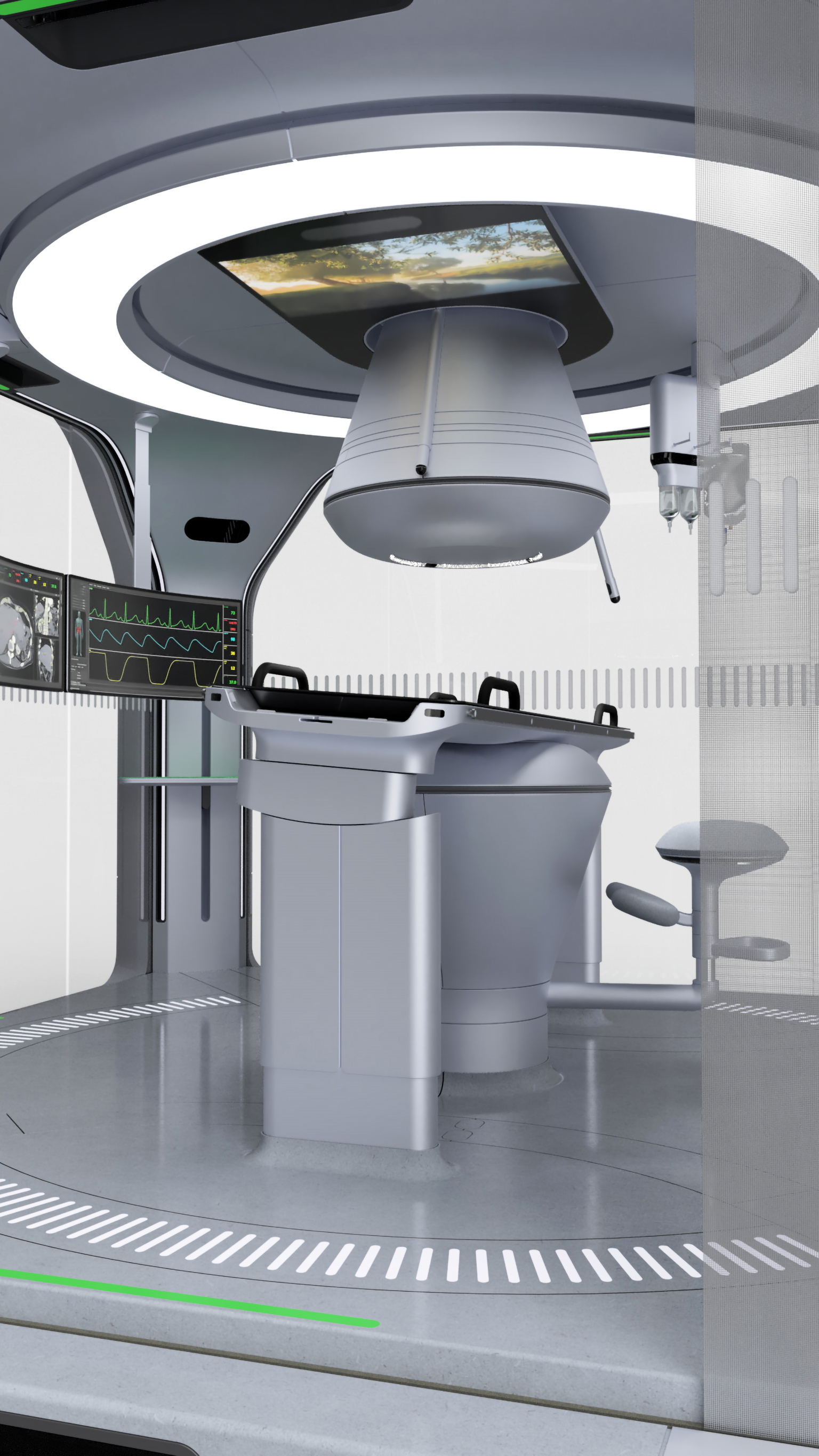



Next Gen Interventional Magnetic Resonance Scanner
Design study of next generation MRT-scanner
Minimally invasive procedures to combat tumors are increasingly finding their way into everyday clinical practice, partly because complex operations can now be carried out on an outpatient basis. Current image-guided minimally invasive ablations are performed with common diagnostic devices. As a result, ergonomic workplace requirements are disregarded and a time-consuming workflow is tolerated. Through the intelligent placement of MRI technology and its tomograph layout, this design creates an efficient workflow while assuring a user-friendly workplace and more comfort for the patient in an already stressful situation.
The concept is extremely innovative and based on a careful analysis of processes and framework conditions. Its implementation is well thought out down to the last detail and formally elaborated to a very high level.
WINNER STATEMENTI am very honored that my design for a next-generation Interventional Magnetic Resonance Scanner has been selected to receive an iF DESIGN STUDENT AWARD. This draws more attention to the concept which I believe is important for medical progress.
UNIVERSITYHochschule Magdeburg-Stendal
Magdeburg, DE